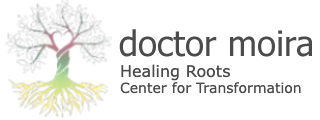Gut and Brain Health
Intestinal Microbiome – “Forgotten Organ”
by Moira Fitzpatrick, PhD, ND, FICPP, CHT
April 2017
Digestion is the foundation of health. There is a significant connection between the brain and the gut which is regulated by the microbiota. The gut microbiota contains bacteria, fungus, parasites and viruses. There are more than 100 trillion bacteria that live in the gastrointestinal tract. The genome size of the microbiota exceeds the size of the human genome by 100 times. Thus, the microbiota can stimulate the brain. The brain also affects the microbiota. The gut is initially colonized at birth when the fetus moves through mom’s vagina. The mode of delivery, type of feeding (breast or formula), the mother’s diet, the environment and the use of antibiotics affect the microbiota of the neonate and its maturation. The microbiota is established by the first three years of life. There is a symbiotic relationship between each of us and the microorganisms within us. It is noteworthy that gut microbiota, neurodevelopment and emotional development all co-occur during this three-year period and to a less extent during adolescence.
What affects the microbiota? Even short exposure to stress can affect the microbiota by altering the proportions of the bacterial families. Experimental alteration of the microbiota influences anxiety and the Hypothalamic-Pituitary-Adrenal axis, which affects our stress hormones, sleep, inflammation and leaky gut. Increased stress suppresses the thyroid. Increased cortisol decreases reproductive hormones. Long term stress affects the hippocampus, the center of memory. There is a strong interconnection of the endocrine, nervous and immune systems that begin in the gut.
Medications affect the bacteria in the gut. Opioids are linked to constipation. NSAIDs affect the immune system in the gut. Proton pump inhibitors can trigger bacterial overgrowth in the upper GI tract. Broad spectrum antibiotics cause a disturbance in the microbial gut community and reduce the diversity of the gut microbiota.
Environmental toxins affect the microbiota. For example, Polycyclic Aromatic Hydrocarbons (PAH) are catalyzed by the microbiotia to estrogen. PAH’s are a risk factor for prostate cancer. We need to avoid charcoal grilled and smoked meats to avoid PAH’s.
What can we do to protect ourselves from toxins? Maintain a strong gut and brain barrier. Decrease stress, insure that the liver is functioning well, maintain homeostasis in the microbiota.
What about mood and the gut? Ninety five percent of serotonin is produced in the gut mucosa by the enterochromaffin cells and enteric nervous system neurons. Peripherally serotonin is involved in regulating GI secretions, gut motility and pain perception. Serotonin in the brain helps to regulate mood. What if a dysfunctional communication between the gut and brain is related to mood disorders?
A dysfunctional gut-brain axis can contribute to leaky gut. This means that the tight junctions in the intestines become enlarged and undigested proteins, toxins and bacteria leak through. The immune system becomes activated as these particles are foreign and an inflammatory process begins.
What lifestyle factors contribute to leaky gut? Let’s start with food sensitivities, processed foods, alcohol, stress, lack of sleep and exposure to environmental toxins.
Are you ready to learn more about the gut-brain axis affects your health?
Dr. Fitzpatrick: “Healthy Gut, Healthy Brain”
April 4th at 6:30 PM Pacific Pearl La Jolla – studio 6933 La Jolla Blvd. Back entrance.
Free. Limited seating, must RSVP: 858-459-6919
Discover the joy of eating nutritious foods and supporting your unique body, the temple of your inner essence.




